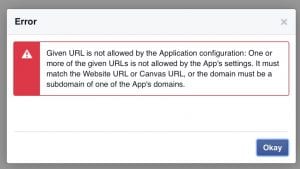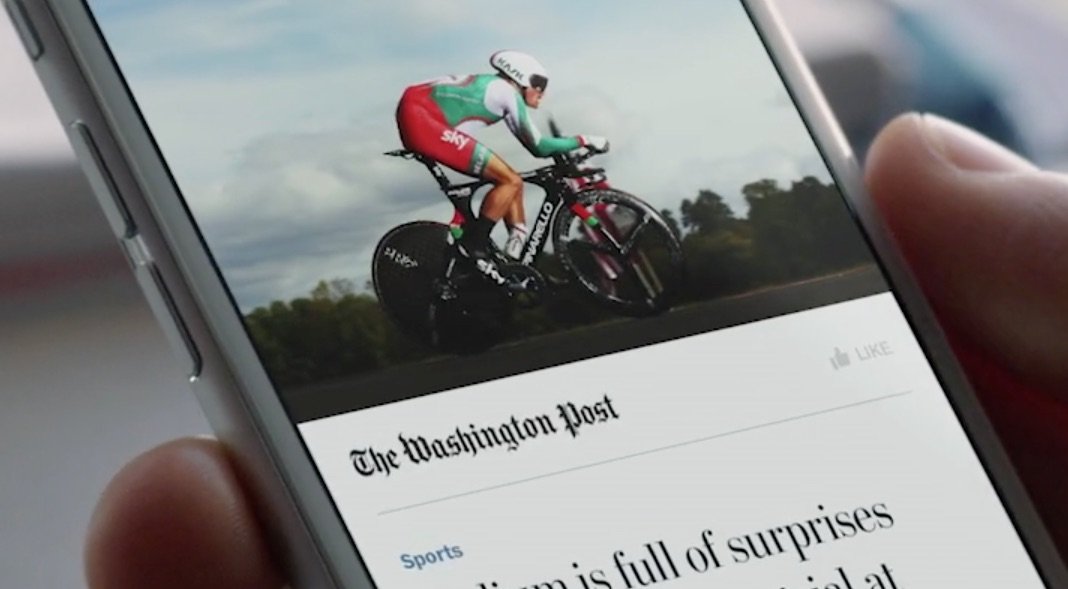Facebook Instant Articles: Instant Frustration
It's not easy getting into a walled garden...
 Back in March, I posted on Facebook’s announcement that it was opening up its Instant Articles platform to all publishers on April 12th. I greeted the news with some trepidation, noting that, a year after the limited trial began, none of the news publishers I sampled were using Instant Articles for all of their most recent posts.
Back in March, I posted on Facebook’s announcement that it was opening up its Instant Articles platform to all publishers on April 12th. I greeted the news with some trepidation, noting that, a year after the limited trial began, none of the news publishers I sampled were using Instant Articles for all of their most recent posts.
However, I ended the article by promising that, when it became available I would give it a test and report my findings. Well, Facebook Instant Articles did indeed open up yesterday but, as those who have liked the Plagiarism Today Facebook Page will see, they are not live as of yet.
While I’m hoping that I will be doing so soon. There’s a decent chance it might take a while before I can start using them.
The reason is because setting up Facebook Instant Articles isn’t as simple as setting up a Facebook Page and installing a plugin on your blog. Despite promises Facebook would make it as easy as possible, it’s a kludgy, frustrating and messy process that was clearly not designed with the average blogger (or even a well seasoned one) in mind.
Even before I’ve published my first Instant Article, I have to urge caution for those considering taking the plunge.
Give Me Three Steps
 On the Facebook Instant Articles home page, Facebook claims that the process for publishing Instant Articles is a simple, three-step one. Those steps include:
On the Facebook Instant Articles home page, Facebook claims that the process for publishing Instant Articles is a simple, three-step one. Those steps include:
- Sign up for Instant Articles
- Develop and Submit your Sample Articles.
- Begin Publishing Instant Articles.
That makes the process sound extremely trivial, especially since Facebook and Auatomattic teamed up to produce a WordPress plugin to further streamline the process for those, like myself, that use the platform.
However, if you look at Facebook’s “Quickstart” guide, you’ll see that the process is a bit more involved than the home page seems to indicate. Fortunately, some of the steps are optional (especially if you are a one-person enterprise) but you still have a lot that you have to both on your site, your Facebook page and your mobile device.
To successfully get Instant Articles working on your site you need to do the following:
- Sign up for Instant Articles (Including a Facebook Page if You Don’t Have One)
- Download and Configure the Pages Manager App for iOS or Android (For Testing)
- If You Intend to Use a WordPress (or Other) Plugin, You’ll Need to Create an App in Facebook for Developers
- Claim Your URL on your Facebook Page (Will Require Editing Your Site’s Header)
- Format Your Articles for Instant Articles (This is What the Plugin Does)
- Setup Either Your RSS Feed or the Facebook API
- Create a Style Template for Your Instant Articles
- Set Up 50 Articles (Yes, Fifty)
- Submit Those Articles to Facebook for Review
- Wait 24-48 Hours and See if You are Accepted
This process, unfortunately, is not straightforward and, in my experience, not clearly explained in the WordPress plugin or by Facebook itself, especially when you try to figure out the order of operations. To make matters worse, it still gets further complicated if you want to add advertisements or analytics to your posts, which require additional steps.
The worst part though is that, after all of this work, you may or may not be approved. Facebook provides a lengthy checklist that your site has to meet and, on top of that, has article policies, design policies and other required elements that your posts have to include.
In short, many sites will not meet these standards out of the box and will have to go back and fix 50 articles to satisfy Facebook, even if they have no interest in actually publishing them.
It’s a time consuming process and, unfortunately, one that doesn’t guarantee you admission into Facebook Instant Articles.
Is it Worth It?
 For me, I’ve managed to prepare 50 articles and submit them. However, I’m expecting to be declined because at least some of the articles violate the design guidelines by repeating images (I realized that after I submitted).
For me, I’ve managed to prepare 50 articles and submit them. However, I’m expecting to be declined because at least some of the articles violate the design guidelines by repeating images (I realized that after I submitted).
Most likely it will be 2-4 days before I’m able to publish my first Instant Article and that’s if everything goes well.
The entire process was fraught with technical difficulties including getting the plugin to work, choosing the right RSS feed and so on. All totaled, the process took me about 4 hours to complete, most of that time spent troubleshooting poorly-documented problems.
About halfway through, I began to wonder if the process was worth it. While Facebook Instant Articles are an interesting idea, it’s not significantly more than a slightly faster/better way for mobile users to read your articles.
Even without the technical issues, Instant Articles come with a great deal of sacrifice. You lose a great deal of control over your work by having to subscribe to Facebook’s design and content guidelines. While you can place ads and analytics, there are strict rules around your images, ad types and and design elements.
In short, my limited experience with Instant Articles has been that the loss of control is greater than I feared and the simplicity of setup is far less than I had hoped. Instant Articles may be open to everyone, but it’s still very much Facebook’s walled gardens and they will not let just anyone in.
Bottom Line
Whether all of this is worthwhile will depend on one thing and one thing alone: How much more interaction Instant Articles get. Facebook is widely expected to give preferential treatment to Instant Articles and publishers on Facebook have long been complaining about declining engagement, even as their audience grows.
Facebook, in their push for Instant Articles, promises more views. We’ll have to see if that comes to fruition.
But even if Facebook is able to deliver on its promise of more views and more attention, it’s not likely to be worthwhile except for the largest and most Facebook-oriented publishers.
The reason is simple. Plagiarism Today currently receives about 2% of it’s traffic from Facebook despite having nearly 3,300 likes. Even if that amount doubles to 4%, that still only represents a small amount of views and time compared to what I get from Google and external links.
Is the time, energy really worth it or would I have been better off just writing new content? Is the loss of control really justified by that gain? If I were more dependent on Facebook the answer would probably be yes, but, for me, I’m moving forward with this as an experiment in content licensing and nothing more.
I’ll be sure to report what I find out.
Want to Reuse or Republish this Content?
If you want to feature this article in your site, classroom or elsewhere, just let us know! We usually grant permission within 24 hours.
